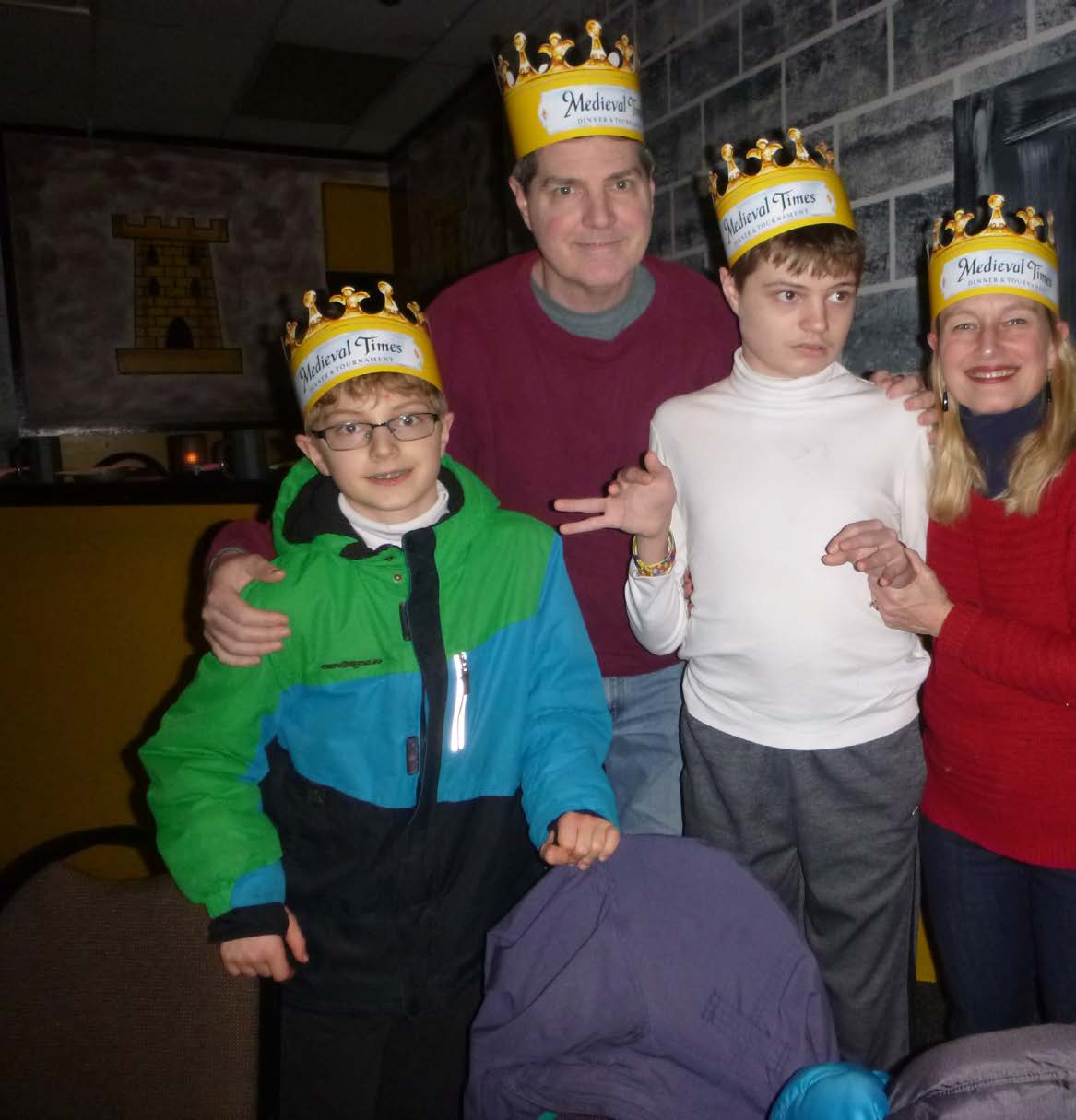The public badly needs exposure to this segment of the autism population, the one that nobody writes the "feel-good" stories about. The one that makes some of us uncomfortable. The one that will never star in a television series.
FOR OUR CHILDREN WITH SEVERE AUTISM, SPEAK LOUD, SPEAK PROUD
BY KIMBERLEE RUTAN MCCAFFERTY
A couple of weeks ago, while procrastinating from what I should have been doing and scrolling through Facebook, I saw a post that immediately caught my interest. It was from the National Council on Severe Autism (NCSA) which I had never heard of, and the title read "Suffering in Silence: The Dark Side of Autism."

SPEAKING OUT: I want the world to see him as I do, a kind-hearted, intrinsically happy almost-man, and I also share the fear I've felt when dealing with my son's meltdowns, my anxiety for his future. I do this in part so that some other parent out there going through this will not feel so alone.
I actually put down my chocolate for better scrolling access,and I never put down my chocolate for anything.
I read the article by a mom out in California who spoke about an incident she had lived through with her 11-year-old severely autistic son, one which culminated in the California Highway patrol pulling up behind her as she parked her car on the highway and hoped to quell the rage her son was displaying toward her so she could safely leave. Both her love and fear for her son came through in every sentence, as well as her heartache in knowing that an attempt to take him ice skating could end this way.
I personally have a 15-year-old severely autistic son with accompanying OCD, tics, and intellectual disability. Justin and I have a profound connection – this is a child who kisses me even when he doesn't want anything and hugs me on a frequent basis. We have a bond that through insomnia, aggression, refusing to eat, soul-sucking OCD and, last year, also a terrible movement disorder, has remained true and strong.
I write a blog about him, Autism I Mommy-Therapist, because I want the world to see him as I do, a kind-hearted, intrinsically happy almost-man, despite his challenges. And yet I also share about his incidents of aggression, the fear I've felt when dealing with my son's meltdowns, my anxiety for his future. I do this in part so that some other parent out there going through this will not feel so alone. I also do this for my own mental health, because it's important that I have an outlet to share my experiences with my severely autistic child.
And I do this in the hopes that more parents will share their stories, and this under-served segment of the autistic population will finally get the attention, and the services, they deserve.
Stories of high-functioning autistic children and adults are easy to find. As the mother of a 12-year-old on the mild end of the spectrum, I want him represented too. However, my eldest son is nothing like the protagonist on The Good Doctor, and yet he also deserves to have his story told. The public badly needs exposure to this segment of the autism population, the one that nobody writes the "feel-good" stories about. The one that makes some of us uncomfortable. The one that will never star in a television series.
Autism acceptance is not just for the high functioning. Those of us with children and adult children on the more severe end of the spectrum need to tell their stories and have them be heard. Many of our children are silenced by the inability to speak or communicate through a device. Their realities should not be silenced too.
I am thrilled with the creation of the NCSA. This is a platform for families with severe autism to finally have a strong voice. I am actively for any organization which can help my kids, and hopefully, with time, we will see NCSA as a major contributor to the goal of realizing safe, happy and productive lives for those severely affected.•
ABOUT THE AUTHOR:
Kimberlee Rutan McCafferty, mother to two sons on the autism spectrum and an Autism Family Partner at the Children's Hospital of Philadelphia (CHOP). Kim is also the author of a blog at autismmommytherapist.wordpress.com. Kim's book Raising Autism: Surviving the Early Years is on sale on Amazon here.
ABOUT THE NCSA
The NCSA focuses on the burgeoning population of children and adults affected by severe forms of autism or related disorders. This population includes those who, by virtue of any combination of cognitive and functional impairments, require continuous or near-continuous, lifelong services, supports, and supervision. Individuals in this category are often nonverbal or have limited use of language, have intellectual impairment, and, in a subset, exhibit challenging behaviors that interfere with safety and well-being.Learn more at ncsautism.org